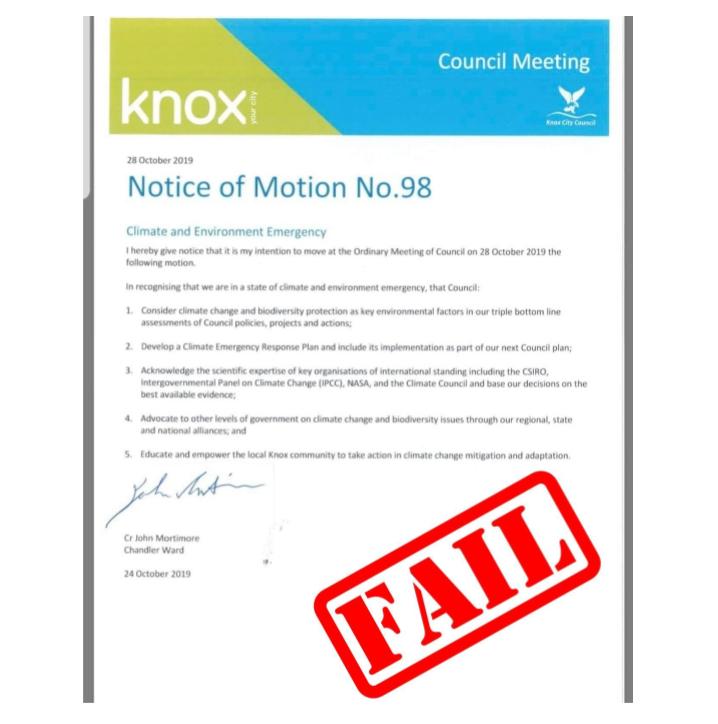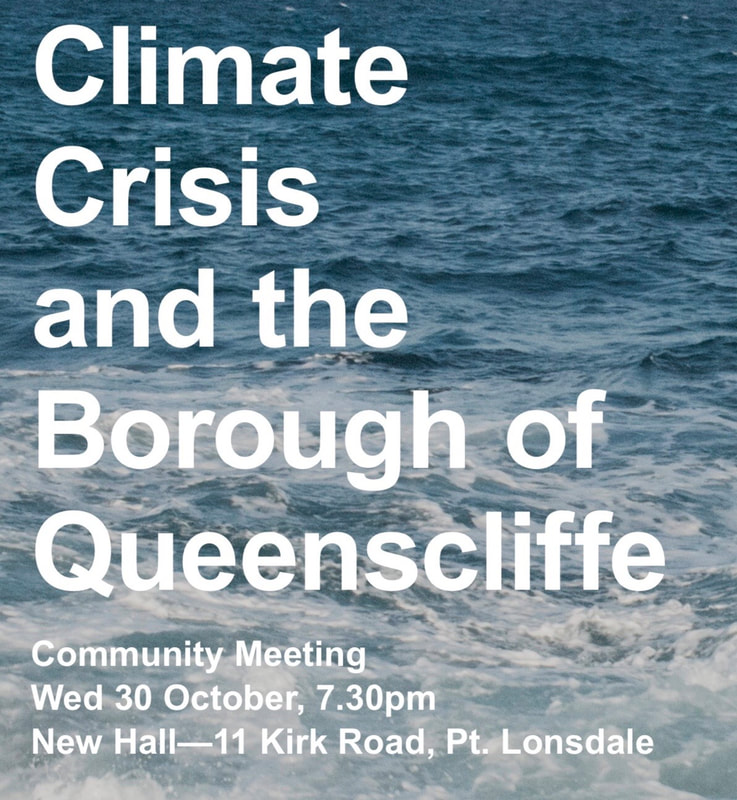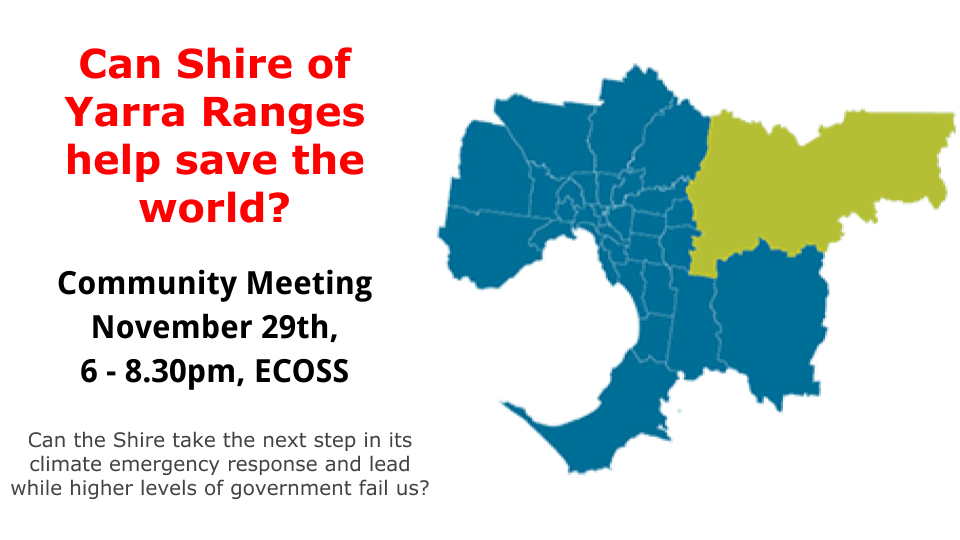 Councils have led the world in declaring that we face a climate emergency, and they can lead the world again by entering full emergency mode. The Shire of Yarra Ranges community has already got it’s council to declare a climate emergency, however this alone will not be enough to save us. CACE (Council and community Action in the Climate Emergency) is now working with community groups to get the first councils in the world to enter full emergency mode. By entering emergency mode the Shire can demonstrate to higher levels of government the type of response we need if we are to avoid a climate collapse. On November 29th, 6- 8.30pm, CACE is co-hosting a Planning Meeting on how the Yarra Ranges community can work towards getting the Shire to enter a full emergency mobilisation to restore a safe climate. This Meeting is on the Friday as the first event the Red and Blue weekend at ECOSS and is open to all members of the community want action to reverse global warming. The meeting will be held in The Coop at Yarra Valley ECOSS. Meeting Agenda
See the facebook event for more details. Help get your council into full emergency mode by checking out the following links....
Find out more about ECOSS here: http://www.ecoss.org.au/ Find out about the Red and Blue event here: https://www.redandbluegatherings.net/victoria-2019.html Adrian Whitehead from CACE this week met with several NSW councillors and community groups regarding full-scale climate emergency response by the relevant councils. The discussion in one council area was particularly promising, with both community, councillors and staff expressing expressing commitment to the necessary full-scale climate emergency mobilisation.
Adrian also received a guided tour by David Maher of a 20 ha Central Coast property, Yula Punal Aboriginal Women’s Healing and Education Centre, situated at the base of Watagan State Forest, that David (Watershed Systems for Recovery of Climate) has been rehabilitating by restoring appropriate watershed infrastructure and appropriate vegetation. The effects to date, even amongst the surrounding dry, are impressive. Councillors opposed to recognising the climate emergency had a significant victory at Knox Council on Monday night (28th October 2019), when they succeeded in stopping Knox Council acknowledging a climate emergency.
The vote followed a very impressive campaign undertaken by the local community, which included the collection of 1000s of signatures supporting the acknowledgement. Around one hundred from the campaign attended the council meeting. The original motion proposed by Cr John Mortimore in response to pressure from local climate emergency activists included the statement “we are in a state of climate and environmental emergency” but this was removed. Instead a highly amended proposal was presented on the night. One Councillor, Cr Adam Gill, questioned the legitimacy of the change given the lateness. The Mayor claimed this had been done to ensure a unanimous vote. The short term victory of those councillors opposing emergency action was complete with no single councillor voting against the removal of the recognition of the climate emergency. However, campaign has positioned the climate emergency as a central topic for the council elections in 2020 and those opposing councillors won the battle but may yet 'lose the war'. Adrian Whitehead of CACE attended the Southwest Climate Action Forum (Thursday 22 October) in Warrnambool run by Geoff Rollinson of Southwest Climate Action. The Forum was attended by over 70 community members, who presented a wide range of campaigning ideas ranging from getting climate friendly members elected to local council, encouraging local dairy farmers to reduce their emissions, and transitioning the Portland Alcoa aluminium smelter to 100% renewables or shutting it down. Both the City of Warrnambool and Moyne Shire have passed motions recognising the climate emergency.
CACE's Adrian Whitehead joined local campaign organiser Kitty Walker, in a meeting with Queenscliffe's Mayor Bob Merriman and new CEO Martin Gill, to discuss the upcoming community meeting about the climate crisis and how Queenscliffe could play are role in responding to it.
Queenscliffe Borough is a unique local government in Australia, being the only borough and servicing a population of around 2700 (2016 census figure). Queenscliffe and surrounding areas will also be drastically affected by climate change, in particular from sea level rise and coastal inundation, making it, as we call them, one of the Atlantis councils who will loose some or all of their land under future sea level rise. The conversation was wide ranging and positive, heralding a good start for community involvement in the Borough's climate response. Please come doe the communty meeting at Pt Lonsdale on Wednesday the 30th. Details below. 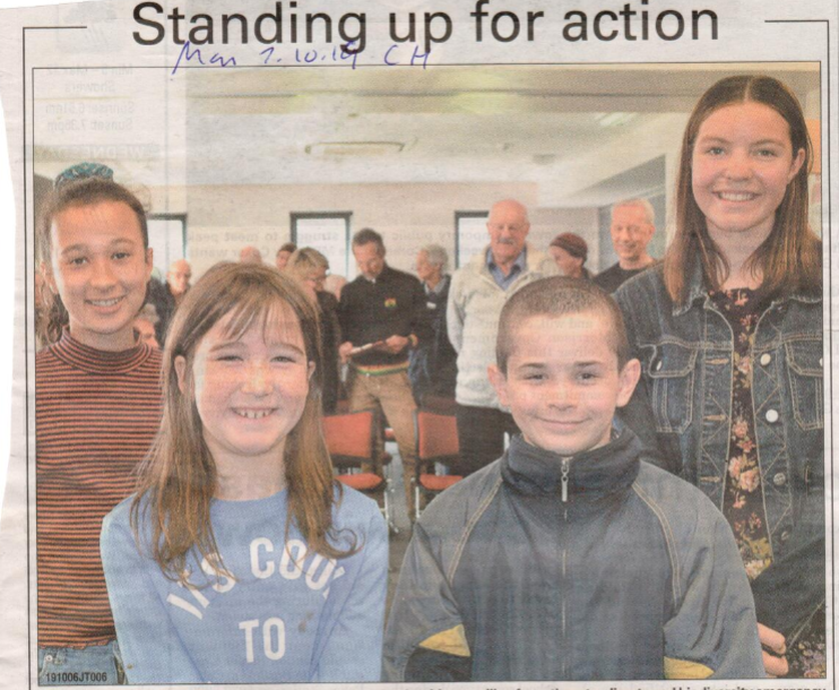 As featured in the Colac Heard 7 Oct 19.... "YOUNG LEADERS: Colac Otway Shire schoolchildren joined residents calling for action at a climate and biodiversity emergency meeting in Colac yesterday. Rhani Adams, Piyali Beale, Teararatai Horo and Rose Gitting stood up at the meeting and urged community leaders to acknowledge a state of climate emergency. Read more about the meeting and a petition to Colac Otway Shire Council in Wednesday's Colac Herald. " Click for more.... 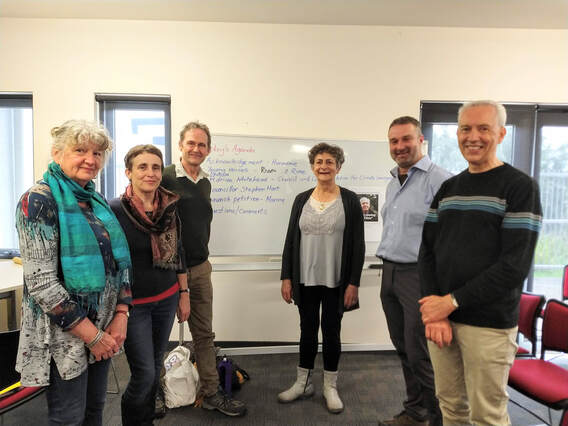 Adrian Whitehead from CACE was a key speaker at a community event held in Colac on Sunday the 6th of October. The events was organised by local community members and was attended by more than 50 residents. The event featured two great speeches from local school children Rhani Adams and Rose Gitting how expressed their concern for their futures and the lack of effort by adults to save them. Cr Steven Hart spoke about what Colac Otway Shire had done and was not doing in this space and the meeting was attended by Cr Brain Crook. The event launched local petition for Colac Otway Shire to acknowledge that we are in a climate emergency and commit to stronger action. The petition is available in hard cop locally and closes on January the 28th. People wishing to get involved in this campaign can contact Marina via her email at lewisandlongmore@netspace.net.au Many councils that declare a climate emergency want a detailed guide to how to proceed post declaration. The CACE website has been breaking down in more detail some of the areas that councils want spelled out in more detail with pages, under 'A Guide for Councils' now including:
-Motions to declare a climate emergency -Your climate emergency plan -Entering emergency mode -Post declaration More detail will be added to these pages over time but the fundamental framework is there for councils to mobilise, which was the original intent of the climate emergency declarations. Nicole and Harry, both studying for a Bachelor of Environment and Society at the Royal Melbourne Institute of Technology, are undertaking internships at CACE toward their qualification. Their work with be added to the 'Post-declaration nuts and bolts clearinghouse'. Nicole will focus on gathering examples of low-cost programs and polices the council can adopt toward its climate emergency response and Harry will focus on council for models for facilitating energy efficient building retrofits.
As of 1 July 2019, 719 councils across 16 countries have declared a climate emergency. With the first to declare in December 2016, the number of councils that has declared has doubled in the past four months, as made available in the global list managed by CEDAMIA.
Moreover the New York City has declared and a number of nations have joined including Canada. This upward momentum to central governments was a goal when the council climate emergency campaign was first developed. |
Archives
February 2024
Categories
All
|
 RSS Feed
RSS Feed
